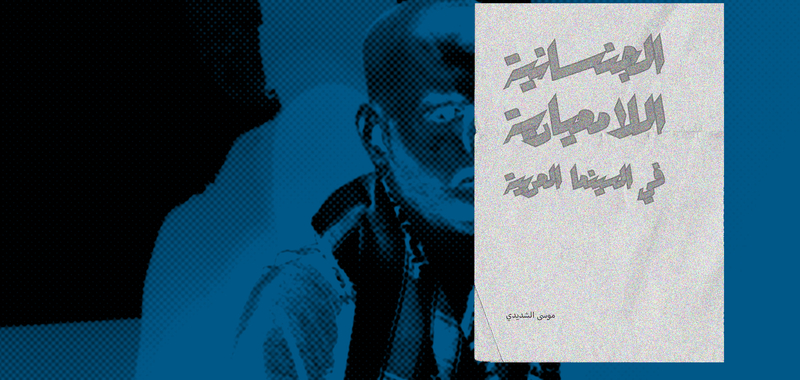ضمن ملف "مشاهدات كويرية للسينما العربية" ننشر مقاطع من الفصل الآخير في كتاب "الجنسانية اللامعيارية في السينما العربية" لموسى الشديدي.
في هذا الفصل يتطرق الشديدي للسّرديات السّينمائية التي تصور المثلي والمثليّة في صورة الضّحيّة، إما للحكومات العربية وآليات قمعها أو للمجتمع وأعرافه، وهو يكشف أن خطاب الضحينة للشّخصيات ذات الجنسانية غير المعياريّة، قد يقصيها بدلاً من إدماجها، حتى وإن كان يسعى "لمناصرة" تلك الجنسانيّات باستجداء الشفقة عليها والتعاطف معها.
في فيلم "طول عمري" (2008) للمخرج والناشط المصري ماهر صبري الذي يتحدث عن شاب مصري اسمه رامي بدأ نمط جديد مختلف في التعاطي السينمائي مع الشهوات غير المعيارية، تتضح مثليّة رامي منذ المشهد الأول: ذلك المشهد الذي يتركه فيه عشيقه ليتزوج من امرأة. في تلك الأثناء تقع حادثة كوين بوت أو عبّارة ناريمان التي وقعت بالفعل في مصر سنة 2001 حيث اعتقلت الحكومة المصرية 52 شاب بتهمة «الشذوذ» وحاكمتهم وحكمت عليهم بالسجن، لنجد الفيلم يوثق لنا الأساليب التي استخدمتها السلطة في اصطياد وتعذيب «المثليين» بين تجنيد بعضهم لفضح أقرانهم أو استخدام حسابات مزيفة على مواقع التعارف والمواعدة الخاصة بالرجال كما حدث لرامي بعد أن ذهب إلى موعد عن طريق إحدى تلك المواقع، ليتم بعدها تعذيبه في السجن والحكم عليه بالحبس لثلاث سنوات كحد أقصى. يتمكن رامي من الهرب إلى الغرب قبل تنفيذ الحكم.
إنها محاولة لكسب التعاطف والشفقة من الجمهور و
بعيداً عن وضع حادثة كوين بوت الفريد من نوعه والذي أتفهم صعوبته تماماً إلا أن هنالك سؤالاً في رأسي حول سبب اختيار قصة شخص مثلي يعتقل ويضرب ويحكم عليه ويهرب كواحد من الـ 52 الذين تم اعتقالهم في كوين بوت بدلاً من الحديث عن المئة الذين وهبوا حياتهم بعد تلك الحادثة للبقاء في مصر والصراع من أجل مساعدة أقرانهم وحمايتهم دون الهرب؟ كصناع سينما لماذا تجذبنا الصورة الدرامية الدامية للضحايا أكثر من الأمثلة القوية للمنتصر على المصاعب والتحديات التي يحتاج المجتمع أن يراها كي يشعر بالأمل؟ الأمل الذي يمثل الأوكسجين في الصراع اليومي الذي يعيشه كل فرد غير معياري الجنسانية في منطقتنا لا يريد الاستسلام.
هذا لا يقلل من شأن الانتهاكات وضحاياها بل على العكس يمنحها سياقاً مختلفاً لعرضها كمصدر للتحدي والاستمرار ويصورها كمحفز للانتصار، وبالتأكيد هذا لا يتنافى مع توثيقها والتنديد بها، لكن عرض «المثليين» كضحايا سيجعل «المثلي» يصدق تلك الصورة السينمائية عنه ويبقى ضحية طوال حياته عند تذويته لتلك الفكرة، وحتى لو تعاطف المجتمع معه سيمنحه الشفقة كضحية لا الاحترام كإنسان.
لقد طالب نصر فريد مفتي مصر بإحراق المخرج مع أن الفيلم لم يعرض في مصر أصلاً. ألهذه الدرجة يخيف فيلم لم يعرض في بلاده مفتي تلك البلاد؟ ربما حان الوقت أن نخيفه أكثر إذاً! "طول عمري" كان الفيلم الأول الذي عرض حياة الفرد المثلي العربي كواقع وليس كشهوة عابرة لا اسم لها مختزلة بمشهد جنسي يتم التعامل معه بحذر أو بسياق اغتصاب أو تحرش أو استغلال جنسي بين شخص مثلي وآخر فقير، مكرساً اضطهاداً طبقياً كجزء من هذه الممارسة.

Neuen Kommentar hinzufügen